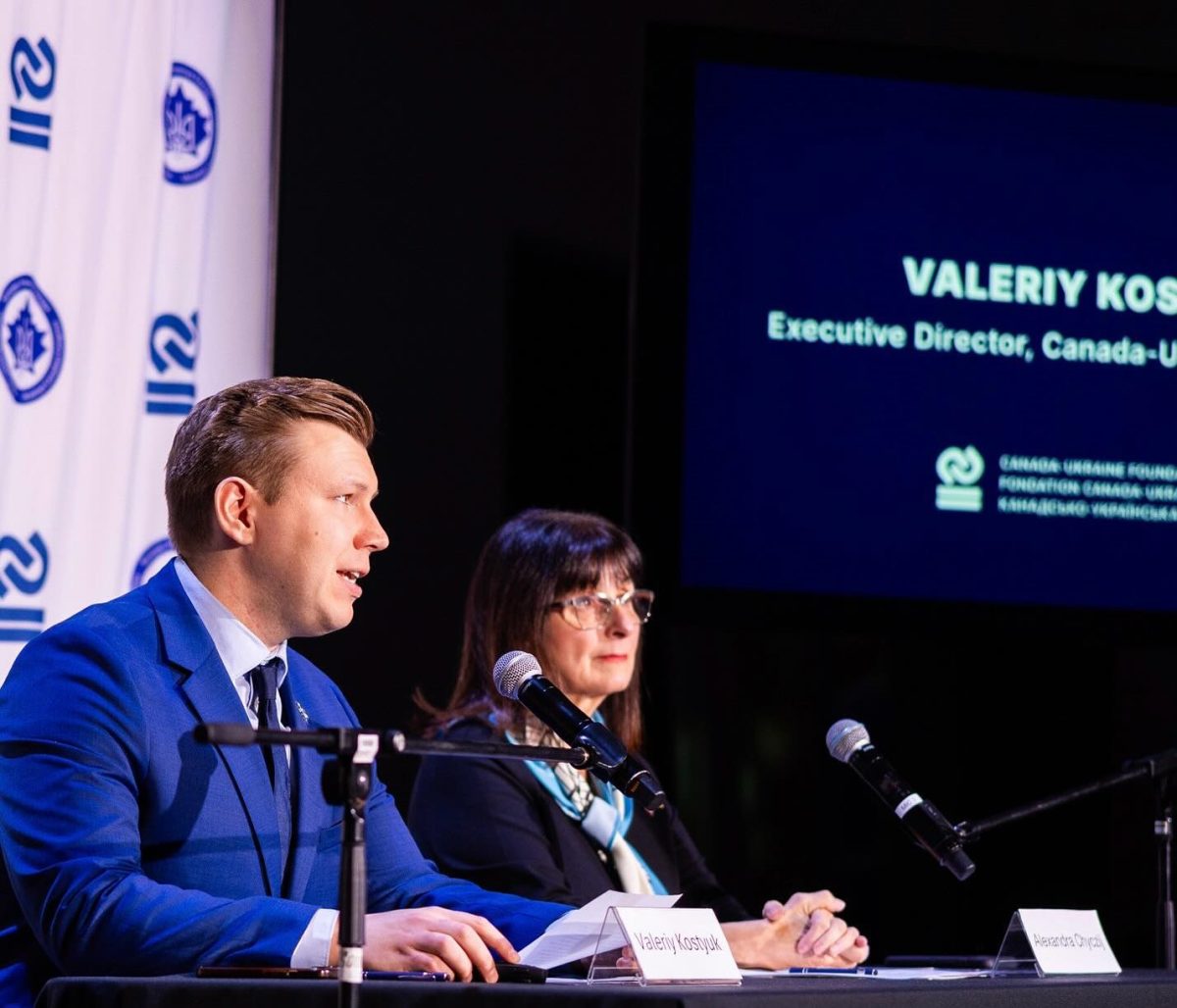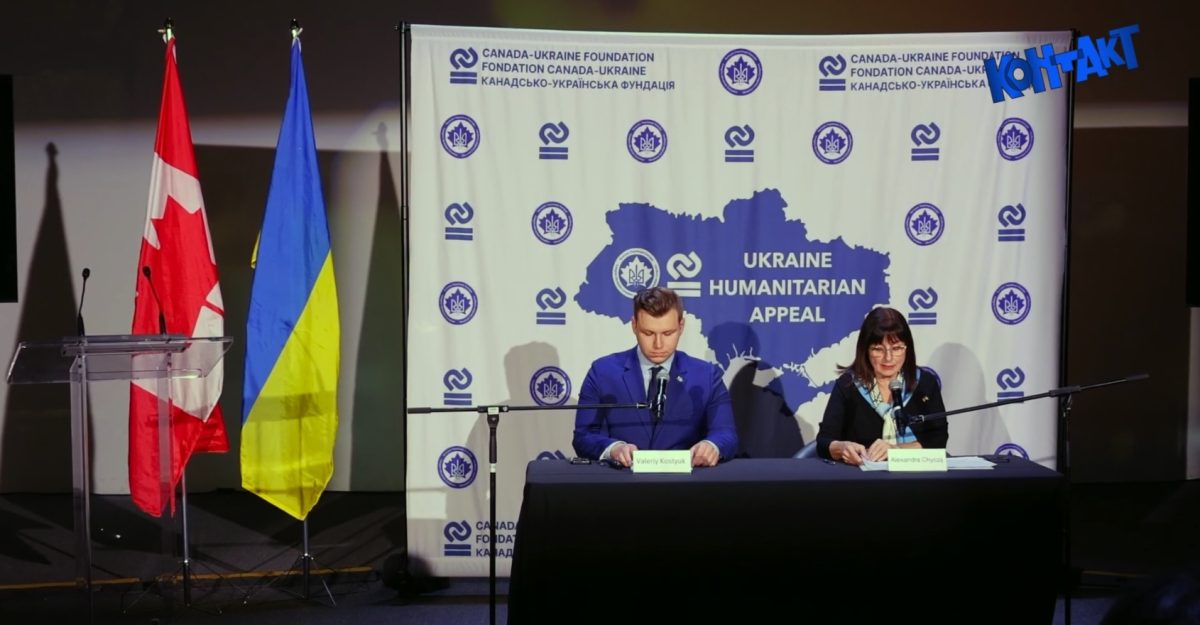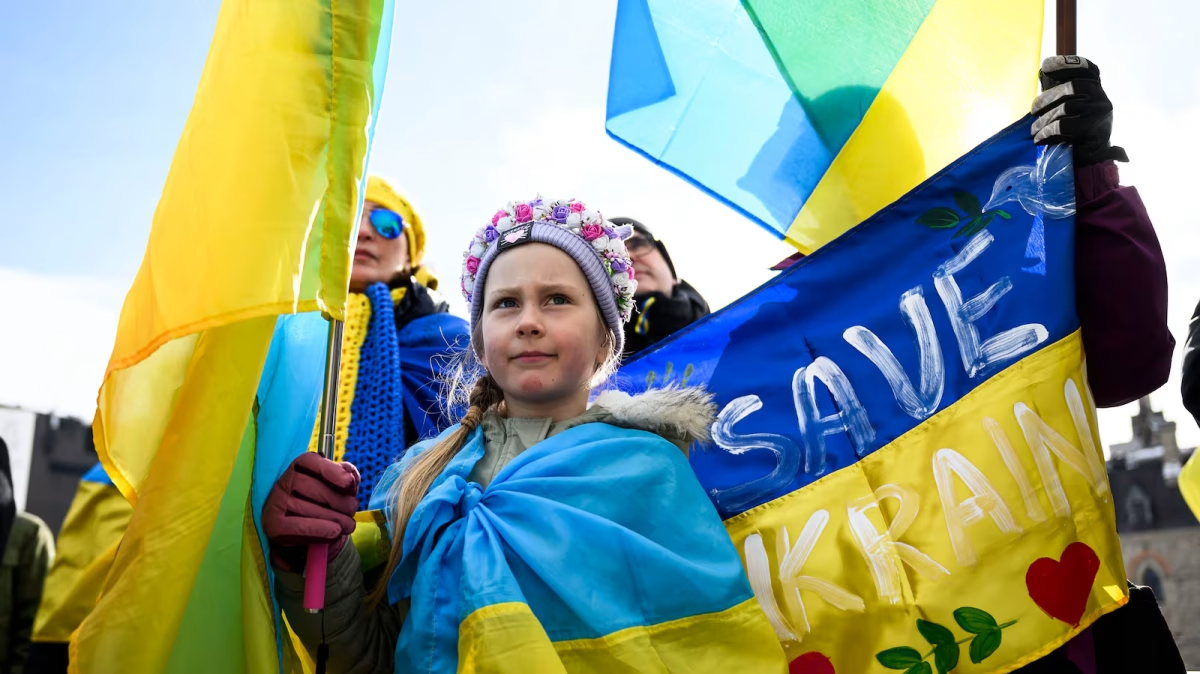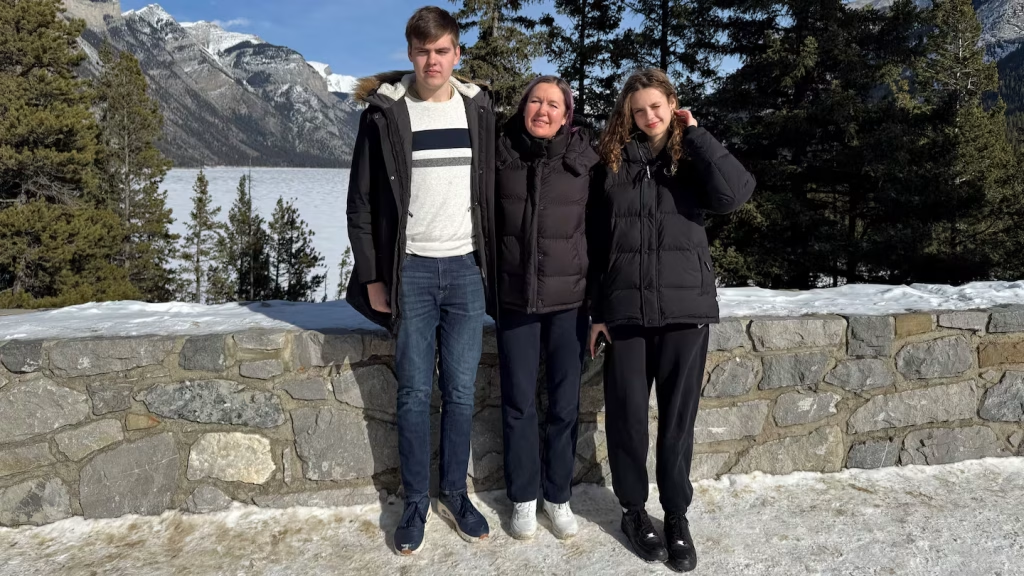Open Letter: The next Canadian leader should set a powerful precedent against Russian aggression
By Special to National Post
Whoever wins Canada’s election next week will immediately face a decision with huge implications for global security and international law. At stake is the equivalent of US$300 billion of frozen Russian central bank reserves held in western currencies, C$22 billion of which is held in Canadian dollars. Given uncertainty among western allies, there’s no guarantee these assets will remain frozen.
Canada will soon host the G7, providing an invaluable opportunity to help stop hundreds of billions from going back to Russia should a European freeze lapse in July. If that happens, Russia will get a massive bailout, pay nothing for Ukraine’s reconstruction, and leave western taxpayers on the hook for both supporting Ukraine and our own defence.
We urge the Canadian government to support the immediate transfer of Russia’s frozen central bank reserves into a fund for Ukraine’s reconstruction and defence. Canada can lead by example and reaffirm that sovereignty, democracy and the rule of law are non-negotiable — and that we stand resolutely with Ukraine. European, G7 and other allies will be compelled to follow. In addition to supporting this asset transfer with its partners, Canada must signal its resolve by taking two policy measures.
The first is to ensure that the Canadian share remains in Canadian hands. The Finance Ministry can do this by segregating the assets into discrete accounts that Canada can independently freeze. The second measure is to pass Sen. Donna Dasko’s proposed amendments to Canada’s sanctions legislation, which would improve the legal basis to transfer Russia’s frozen funds held in Canadian dollars.
With uncertainty in Washington and the EU having to unanimously reaffirm sanctions every six months, there is significant risk countries like Hungary and Slovakia may veto an extension of EU sanctions, emboldened by the White House’s recent dovish turn on Russia. If that happens, Russia will be free to take back approximately $210 billion (USD equivalent), even though Canada and the vast majority of other allies oppose it. This would include the $22 billion Canadian share, unless the Finance Ministry segregates it.
A bailout for Vladimir Putin will strengthen Russia financially and militarily, unleashing hundreds of billions for Russia to wage war, possibly beyond the borders of Ukraine, including in Canada’s Arctic. Putin is estimated to have hidden US$300 billion in off-book debts to fuel Russia’s war effort. If these assets are returned, the West will have given him a bailout and be complicit in the destruction of Ukraine. For perspective, from 2022 to the end of 2024, Ukraine has received a total of US$445 billion in defence, humanitarian and financial assistance from countries around the world.
With Canada’s C$22 billion share being substantially higher than the aid it has provided to Ukraine since 2022, this is the single most important thing Canada can do right now for Ukraine to increase its resources and leverage — at no extra cost to the Canadian taxpayer. It would shatter Putin’s belief that he will have the funds to outlast western support. It would go a long way to securing a just and lasting peace.
Numerous prominent legal experts have supported the legality of seizing and transferring Russian sovereign assets under the international law doctrine of state countermeasures. Prominent economists and financial experts have stated it won’t harm financial stability.
As the next G7 host, we urge the winner of the upcoming election to demonstrate Canadian leadership at a critical time, setting a powerful precedent against aggression.
One Nanos poll shows over 80 per cent of Canadians in favour. Individual members of both major political parties and independent senators have already voiced their support. Canada is well-positioned to provide leadership.
All Canadian political parties and leaders should clearly articulate their position on this issue prior to the April 28 federal election, so that voters can take it into account. Canada has welcomed almost 300,000 displaced Ukrainians and the 1.4-million strong Ukrainian community is one of Canada’s largest ethnic communities. The message Canada sends them — and the world — must be clear: Canada does more than offer refuge and words. We take meaningful, courageous action and influence other nations to do the same.
Signatories:
The Right Honourable Stephen J. Harper, 22nd Prime Minister of Canada, 2006-2015
The Right Honourable Boris Johnson, 54th Prime Minister of the United Kingdom, 2019-2022
The Right Honourable Rishi Sunak, 56th Prime Minister of the United Kingdom, 2022-2024
Krišjānis Kariņš, 23rd Prime Minister of Latvia, 2019-2023
The Honourable Lloyd Axworthy, Minister of Foreign Affairs, 1996-2000
The Honourable David Collenette, Minister of Multiculturalism (1983-1984); Minister of National Defence and Minister of Veterans’ Affairs, 1993-1996; Minister of Transport (1997-2003)
The Honourable Allan Rock, Canadian Ambassador to the United Nations, 2004-2006 and Minister of Justice, 1993-1997
The Honourable Irwin Cotler, Minister of Justice and Attorney General, 2003-2006 International Chair of the Raoul Wallenberg Centre for Human Rights (RWCHR)
The Honourable Peter MacKay, Minister of Justice and Attorney General, 2013-2015, Minister of National Defence, 2007-2013 & Minister of Foreign Affairs, 2006-2007
The Honourable Ed Fast, Minister of International Trade, 2011-2015
The Honourable Chris Alexander, Minister of Citizenship and Immigration, 2013-2015 and Canadian Ambassador to Afghanistan, 2003-2005
Artis Pabriks, Deputy Prime Minister & Minister of Defence, 2019-2022 & Minister of Foreign Affairs, 2004-2007, Republic of Latvia
Kajsa Ollongren, Minister of Defence, 2022-2024 & Deputy Prime Minister, 2020-2022, The Netherlands
Lawrence H. Summers, US Treasury Secretary, 1999-2001
Natalie Jaresko, Minister of Finance, 2014-2016, Ukraine
Gabrielius Landsbergis, Minister for Foreign Affairs, 2020-2024, Republic of Lithuania
The Honourable Ed Stelmach, 13th Premier of Alberta, 2006-2011
Dr. Marie Bountrogianni, Ontario Cabinet Minister, 2003-2007 & Advisory Board Member, Eurobank e.g.g. business accelerator
The Honourable Thomas A. Lukaszuk, Deputy Premier of Alberta and Minister of Education, 2012-2013
Norman Spector, Chief of Staff to the Prime Minister, 1990-1992; Canadian Ambassador to Israel 1992-1995
Amb. John Herbst, US Ambassador to Ukraine, 2003-2006
The Honourable Donna Dasko, Independent Senator for Ontario
The Honourable Stanley Kutcher, Independent Senator for Nova Scotia
The Honourable Ratna Omidvar, retired Independent Senator for Ontario, 2016-2024
Borys Wrzesnewskyj, MP 2015-2019 & Founder, Canada-Ukraine Parliamentary Association, Former Chair, Canadian-NATO Parliamentary Association
General (Retired) Rick Hillier, Chief of the Defence Staff, 2005-2008
James C. Temerty, Chairman of Temerty Foundation; Founder, Northland Power
Bill Browder, CEO Hermitage Capital Management, Head of the Global Magnitsky Justice Campaign
Oleksandra Matviichuk, 2022 Nobel Peace Prize co-laureate; Founder, Center for Civil Liberties, Ukraine
Robert Zoellick, President of the World Bank, 2007-2012
Olivier Blanchard, Chief Economist, International Monetary Fund (IMF), 2008-2015; Senior Fellow, Peterson Institute for International Economics
Nazanin Afshin-Jam, Founder, Nazanin Foundation
Chantal Kreviazuk, Juno award-winning singer-songwriter; Founding Artist and Ambassador, War Child Canada
Heidi Yetman, President, Canadian Teachers’ Federation
Noah Shack, President, Centre for Israel and Jewish Affairs
Raoul Wallenberg Centre for Human Rights (RWCHR)
Democratic Strategy Initiative (DSI)
Macdonald-Laurier Institute (MLI)
Montreal Institute for Global Security (MIGS)
David Edwards, General Secretary, Education International
Marcus Kolga, Co-Founder, Central and Eastern European Council in Canada; Director, DisinfoWatch; Senior Fellow, Macdonald-Laurier Institute and CDA Institute
Kyle Matthews, Co-founder and Executive Director, MIGS
Fen Osler Hampson, President, World Refugee & Migration Council
Jay Rosenzweig, CEO, Rosenzweig & Company; Chair of RWCHR
Brandon Silver, International human rights lawyer & Director of Policy and Projects, RWCHR
Aaron Gasch Burnett, Co-Founder & Senior Fellow, Democratic Strategy Initiative
Balkan Devlen, Senior Fellow, MLI; Co-Lead, Pendulum Geopolitical Advisory
Yaroslav Baran, Chair of Board, Parliamentary Centre; Founding Partner, Pendulum; Board, Canada-Ukraine Foundation
Jonathan Berkshire Miller, Senior Fellow, MLI; Co-Lead, Pendulum Geopolitical Advisory
Matthew Bondy, CEO of Bondy & Associates; Senior Fellow, MLI
Richard Shimooka, Senior Fellow, MLI
Alexander Dalziel, Senior Fellow, MLI
Sheryl Saperia, CEO, Secure Canada
Adam Bolek, President and CEO, Canada Strong and Free Network
Bob Onyschuk, Partner (ret.) Gowling WLG International Law; Founding President CUCC
Jaime Pitfield, CEO, Parliamentary Centre
Alexander Lanoszka, Associate Professor, Balsillie School of International Affairs, University of Waterloo
Michael Cholod, Executive Director, Peace Coalition Foundation
Timothy Ash, Senior Sovereign Strategist, RBC Bluebay Asset Management; Associate Fellow, Chatham House
Philip Zelikow, 27th Counselor of the United States Department of State (2005-2007), Botha-Chan Senior Fellow, Hoover Institution, Stanford University
Anders Aslund, Senior Fellow, Stockholm Free World Forum
Yuliya Ziskina, International lawyer & Senior Legal Fellow, Razom for Ukraine
Tetyana Nesterchuk, Barrister, Fountain Court Chambers; UK expert at the Council of Bars and Law Societies of Europe
Jamison Firestone, Co-Founder, Global Magnitsky Justice Campaign
Katherine Vellinga, CEO, Zirkova Vodka; Board of Directors CUCC
Mariana Budjeryn, Harvard Kennedy School’s Belfer Center for Science and International Affairs; Author “Inheriting the Bomb”
Heather Bakken, Founding Partner, Pendulum Group
Stephen Leckie, CEO Canada’s Culinary Championships; CEO Canada’s Great Kitchen Party
Rupert Murray, Marine Conservationist and Filmmaker, United Kingdom
Iranian Justice Collective, “Woman, Life, Freedom” Iranian diaspora movement, Canada
League of Ukrainian-Canadian Women (LUCW)
Canada-Ukraine Foundation (CUF)
Canada-Ukraine Chamber of Commerce (CUCC)
Ukrainian-Canadian Professional and Business Federation (UCPBF)
Ukrainian-Canadian Bar Association (UCBA)
Kelowna Stands With Ukraine (KSWU)











